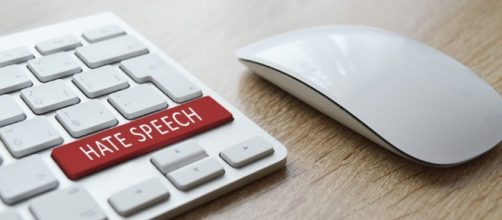#Facebook has allowed its users to create networks of people around the world that share similar views. Sadly it has also become a means to find recruits for ideas and ideologies that may not be legal in a number of countries. One of these is by the use of hate speech to promote certain political agendas aligned to extremists groups and the solutions are not easy to find.
Algorithms are not enough
Every political ideology has its followers, but there are groups that are banned in some countries that try to use Facebook to promote their ideologies in order to avoid legal consequences.
The creators of Facebook have put into action programmes to control such behaviour but algorithms are not enough on their own.
In Germany and Italy any group seeking to revive the former Nazi and Fascists parties that started the Second World War is banned by Law. Yet many of their followers use the social media to promote their agendas and as can be expected by those who have studied the History of these parties, racism forms a fundamental part of their respective agendas. Anyone checking these pages will see frequent references to migrants and other minority groups which all too often use violent, racist and extremist language. In both these countries these activities are clearly illegal and the respective governments have expressed their reserves to Facebook’s administrators.
The challenge for the administrators is to pick up the specific terms and images that are clear messages for the followers of these groups. Automatic programmes cannot and do not pick up expressions that only experts in the respective languages are be able to recognize. This may well require human intervention of language experts to ascertain whether or not the language used conforms to Facebook’s stated community standards.
These sorts of messages were often seen in online debates in the lead up to last November’s Presidential campaign. Images such as Pepe the frog used by white supremacist groups and the use of certain terms and expressions added a level of antagonism in the campaign won by #Donald Trump that had little to do with politics as much as the promotion of racist agendas.
Fake news and Democracy
The social media has also become a very widespread and effective means of spreading fake news. The natural tendency to believe the worst of opponents means that many users share news items without checking if the sources are reliable, or if the news is real. Many fake news pages are created with names similar to mainstream newspapers to deceive users into believing that their news is real.
As we have seen repeatedly once the fake news begins to spread it takes on a life of its own and is then used as a source by others in the future. Such is the level of concern that in Germany on this issue that in the light of its upcoming elections that the government is threatening to fine Facebook heavily if it does not control the spread of fake news.
In these ways Facebook had begun blurring the limits of what is legal or illegal and in particular what is free speech and what is inciting racial hatred. These are legitimate concerns that must be considered by Facebook because freedom of expression should not include freedom to express violent and anti social behaviour.

